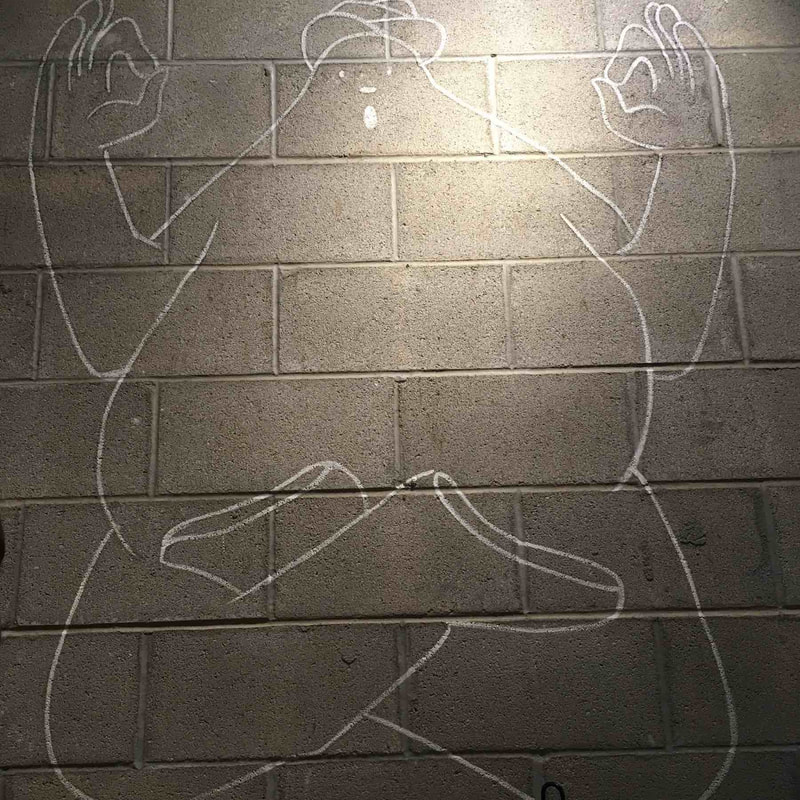Finding Calm in the Storm of Writing
"We become the work to which we dedicate ourselves.”
- Janna Malamud Smith
- Janna Malamud Smith
|
Last month, I suggested that—if you’re having trouble settling into your summer writing—you start with only the minimum. Whatever you can. The most inadequate thing, just so you can get going. I say this a lot: to grad students; to profs; to myself.
The reason I say this so much is that many of us tend to devalue incremental effort and progress. Scholars can often feel that if we can’t do it all–immediately and better than it’s ever been done in the history of humanity–then nothing we did mattered at all. So I recommend just a tiny bit, here and there, to make it easier to get started. But once you actually have gotten started, it’s totally legit to want to grow your writing a little. You might be–not just ready, but eager to build “a real writing habit.” If this is where you are, I’m going to suggest something that sounds a little weird: stop trying to build a writing habit. |
A habit is something we do repeatedly, automatically—often without thinking it through or questioning whether it will happen. Brushing your teeth. Saying grace before eating. Taking Lake Shore Drive instead of I-94. Heading straight for the fridge when you come home from school (oh wait, was I the only one who did that?). These are all examples of grooves we can get into, where we almost sleepwalk through the behavior because it’s so familiar, or easy, or comforting. The habit groove can get so well worn that we might not even notice what we’re doing, or have a clear memory later on of what the experience was like.
I think, without realizing it, many of us hope that this is what writing will be like at some point. This magical activity that’s so baked into our existence that we barely need to pay any attention in order to do it each day. It just happens because, well, that’s what we do.
And it’s true—there is a time when your writing gets to that beautiful place where you no longer question whether or not you’re going to do it. But that beautiful place is not a habit. It’s not an unthinking act. That beautiful place is a practice.
A practice, like a habit, is something we do repeatedly. But instead of moving through our practice unconsciously, we do it deliberately. With intention. In an effort to increase our proficiency at whatever we’re doing. A practice, as Janna Malamud Smith says, is “an effort at mastery that requires time and focus.” And when it’s working optimally, that practice becomes a delightful part of who you are. You begin to understand yourself, as a writer. Or at the very least, as someone with a writing practice.
And being that person feels good.
There are lots of things about writing we might try to master when we sit down at the desk: If you are a grad student you might be trying to master the genre of the journal article. If you’re a more senior scholar, your field’s genre might be baked into your brain, and now you’d like to explore infusing it with your own voice. But regardless of where you are in your career, the most foundational skill that scholars with a writing practice must master is the ability to overcome the emotional and psychological obstacles that are inherent to writing itself.
Knowing how to move past those obstacles is what gets you to the place where writing is unquestioned. Because when you know how to calm yourself down and quiet your doubts, there’s no need to ask whether or not you’ll be able to sit down and write. You know you can do it. You have what Robert Boice calls “a calm and patient focus,” which is the bedrock of a writing practice. And eventually you get to the point where you write because it’s who you are. And because being who you are, being able to show up as your whole self, feels spectacular.
Is writing easy when you have a practice? No. It’s still hard as AF. But what’s hard about it changes. When you have a practice, what’s hard is the work itself. When you don’t have a practice, what’s hard is the worry, shame, and guilt that comes from not having done the work.
The purpose of a writing practice is not promotion. It’s not publication. It’s not any of the external rewards that come from what we produce. Those are just some of the delicious outcomes of our writing practice, but they are not its purpose. The purpose of a writing practice is to bring pleasure, pride, and satisfaction to our working life.
So: should you eventually increase the number of times you write per week? Yes. Absolutely. That’s the goal. One really great way to do that is to strengthen your ability to ease any tension you feel when you think about writing. So take a few minutes before your next session to reflect on how you calm yourself in other areas of life. Do you count to ten when you wanna smack your kid? Do you listen to a playlist or the first five minutes of Ali Wong standup? Maybe you’ve recently been introduced to kickboxing and it’s saving your life. Whatever it is, try employing that strategy before you sit down to write.
Doing so can help you build your own “calm and patient focus.” And that focus will make your writing practice more pleasurable and more productive. Best of all, it will make your work life more fulfilling. I’m with Malamud Smith when she asserts that:
I think, without realizing it, many of us hope that this is what writing will be like at some point. This magical activity that’s so baked into our existence that we barely need to pay any attention in order to do it each day. It just happens because, well, that’s what we do.
And it’s true—there is a time when your writing gets to that beautiful place where you no longer question whether or not you’re going to do it. But that beautiful place is not a habit. It’s not an unthinking act. That beautiful place is a practice.
A practice, like a habit, is something we do repeatedly. But instead of moving through our practice unconsciously, we do it deliberately. With intention. In an effort to increase our proficiency at whatever we’re doing. A practice, as Janna Malamud Smith says, is “an effort at mastery that requires time and focus.” And when it’s working optimally, that practice becomes a delightful part of who you are. You begin to understand yourself, as a writer. Or at the very least, as someone with a writing practice.
And being that person feels good.
There are lots of things about writing we might try to master when we sit down at the desk: If you are a grad student you might be trying to master the genre of the journal article. If you’re a more senior scholar, your field’s genre might be baked into your brain, and now you’d like to explore infusing it with your own voice. But regardless of where you are in your career, the most foundational skill that scholars with a writing practice must master is the ability to overcome the emotional and psychological obstacles that are inherent to writing itself.
Knowing how to move past those obstacles is what gets you to the place where writing is unquestioned. Because when you know how to calm yourself down and quiet your doubts, there’s no need to ask whether or not you’ll be able to sit down and write. You know you can do it. You have what Robert Boice calls “a calm and patient focus,” which is the bedrock of a writing practice. And eventually you get to the point where you write because it’s who you are. And because being who you are, being able to show up as your whole self, feels spectacular.
Is writing easy when you have a practice? No. It’s still hard as AF. But what’s hard about it changes. When you have a practice, what’s hard is the work itself. When you don’t have a practice, what’s hard is the worry, shame, and guilt that comes from not having done the work.
The purpose of a writing practice is not promotion. It’s not publication. It’s not any of the external rewards that come from what we produce. Those are just some of the delicious outcomes of our writing practice, but they are not its purpose. The purpose of a writing practice is to bring pleasure, pride, and satisfaction to our working life.
So: should you eventually increase the number of times you write per week? Yes. Absolutely. That’s the goal. One really great way to do that is to strengthen your ability to ease any tension you feel when you think about writing. So take a few minutes before your next session to reflect on how you calm yourself in other areas of life. Do you count to ten when you wanna smack your kid? Do you listen to a playlist or the first five minutes of Ali Wong standup? Maybe you’ve recently been introduced to kickboxing and it’s saving your life. Whatever it is, try employing that strategy before you sit down to write.
Doing so can help you build your own “calm and patient focus.” And that focus will make your writing practice more pleasurable and more productive. Best of all, it will make your work life more fulfilling. I’m with Malamud Smith when she asserts that:
|
“Life is better when you possess a sustaining practice that holds your desire, demands your attention, and requires effort; a plot of ground that gratifies the wish to labor and create—and by so doing, to rule over an imagined world of your own.”
|

